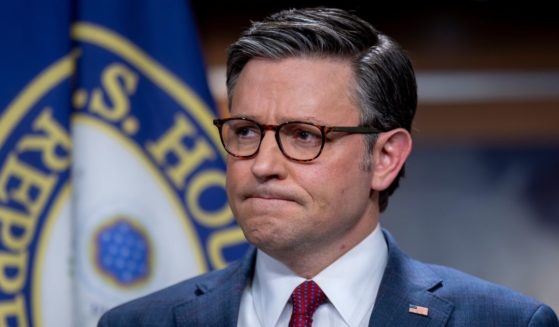Health insurance on demand? Some are betting on it
People with health insurance often pay for coverage they never use. A startup wants to shake that up.
It’s a radical idea: On-demand insurance that lets customers buy some of their coverage only if and when they need it, similar to how TV viewers might rent a new release from Amazon instead of paying every month for a pricey cable package they rarely use.
This approach from Bind Benefits is one of the latest wrinkles in a yearslong push by companies and insurers to control costs and make patients smarter health care shoppers. And it’s drawing attention from the nation’s largest health insurer, UnitedHealthcare, and some sizeable employers.
“It’s the sort of thing we need entrepreneurs to be doing,” said Robert Laszewski, a health care consultant and former insurance executive. “We haven’t had a new idea in managed care in I don’t know how long.”
Bind’s plan draws concern from researchers worried about how this may hurt some pocketbooks, but it also has attracted employers hungry for a fresh way to tame expenses.
School superintendent Barry Rose picked Bind as the only coverage option earlier this year for the Cumberland, Wisconsin, school district after cycling through numerous health plans in the last six years. Rose said about two-thirds of his workers use $500 or less in health care every year, and he didn’t want to charge them premiums for care they weren’t using.
“We have quality health care. If people need it, great. If they don’t, at least we’re not soaking them for it,” he said.
Minneapolis-based Bind is not an insurer, but it designs health plans for big employers that pay their own bills.
Here’s how it works. Under Bind’s plan, customers pay a base monthly premium that can be as much as 40 percent cheaper than other options their employer offers, the company says.
That covers most care, like doctor visits, hospital stays, maternity care, cancer treatment and prescriptions.
A patient can then buy additional coverage for some procedures that aren’t urgent like a knee surgery or hip replacement. In these cases, the patient has time to plan for the care and look at different options for who performs it.
The additional coverage comes with an extra premium and possibly a copayment, depending on the care provider and what is being purchased. In these cases, patients might get stuck paying more than $1,000 in additional costs.
Users log onto Bind’s website or app to see what is covered, what it will cost them. That can vary based on Bind’s quality rating for a provider and how efficiently it provides care. Someone with an ear infection might pay nothing for a telemedicine visit. But a trip to an expensive emergency room for such a minor illness might cost a few hundred dollars.
“If we get everyone buying better, we actually make the product more affordable for all of us,” said Bind CEO Tony Miller.
If patients stick to the plan’s provider network in that core coverage, they will have one bill — a copayment. Miller said Bind avoids high deductibles or co-insurance payments that make it hard for some to understand how much care really costs.
That simplicity helped Nancy Buchholz when she was trying to track her husband’s expenses for cancer treatment last spring. She said he died six weeks after being diagnosed, and she became overwhelmed by billing notices from the hospital showing that care costs were approaching $300,000.
But the only bill she had to pay for his hospital stay was the $1,900 copayment laid out in the insurance plan.
“When you go through something that’s emotionally devastating, the last thing you want to worry about is having to make sure something is paid for,” said the Cadott, Wisconsin, resident, who got Bind coverage through her employer, Dove Healthcare.
The potential for unexpected additional costs under Bind’s system concerns Sabrina Corlette, a research professor at Georgetown’s Center on Health Insurance Reforms. She noted that older customers are more likely to wind up with these big bills because they tend to have more expensive procedures.
“This gets close to the line if not a little bit over the line of being discriminatory because it would only be people who have certain health conditions that would face higher premiums,” she said.
Miller said his plans comply with federal anti-discrimination laws, and they provide all covered members the same benefit at the same cost.
Bind started selling coverage this year and only has a few thousand people enrolled. But it is expanding nationally, with help from UnitedHealthcare, which covers more than 40 million people. UnitedHealthcare is offering Bind coverage to some employer customers for 2019.
The company will need to offer big discounts to attract more business, said Laszewski, the health care consultant.
He noted that customers are slow to accept new insurance ideas, and Bind relies on patients trusting its quality rating for the doctor they pick. That’s a gamble in health care, where it’s hard for people to understand and feel comfortable with those measurements.
“If you’re going to expect employers and consumers to take risks, they’re going to have to see a premium up front,” he said. “They’re not going to buy the sales pitch.”
___
Follow Tom Murphy on Twitter: @thpmurphy .
___
The Associated Press Health & Science Department receives support from the Howard Hughes Medical Institute’s Department of Science Education. The AP is solely responsible for all content.
The Western Journal has not reviewed this Associated Press story prior to publication. Therefore, it may contain editorial bias or may in some other way not meet our normal editorial standards. It is provided to our readers as a service from The Western Journal.
Truth and Accuracy
We are committed to truth and accuracy in all of our journalism. Read our editorial standards.












